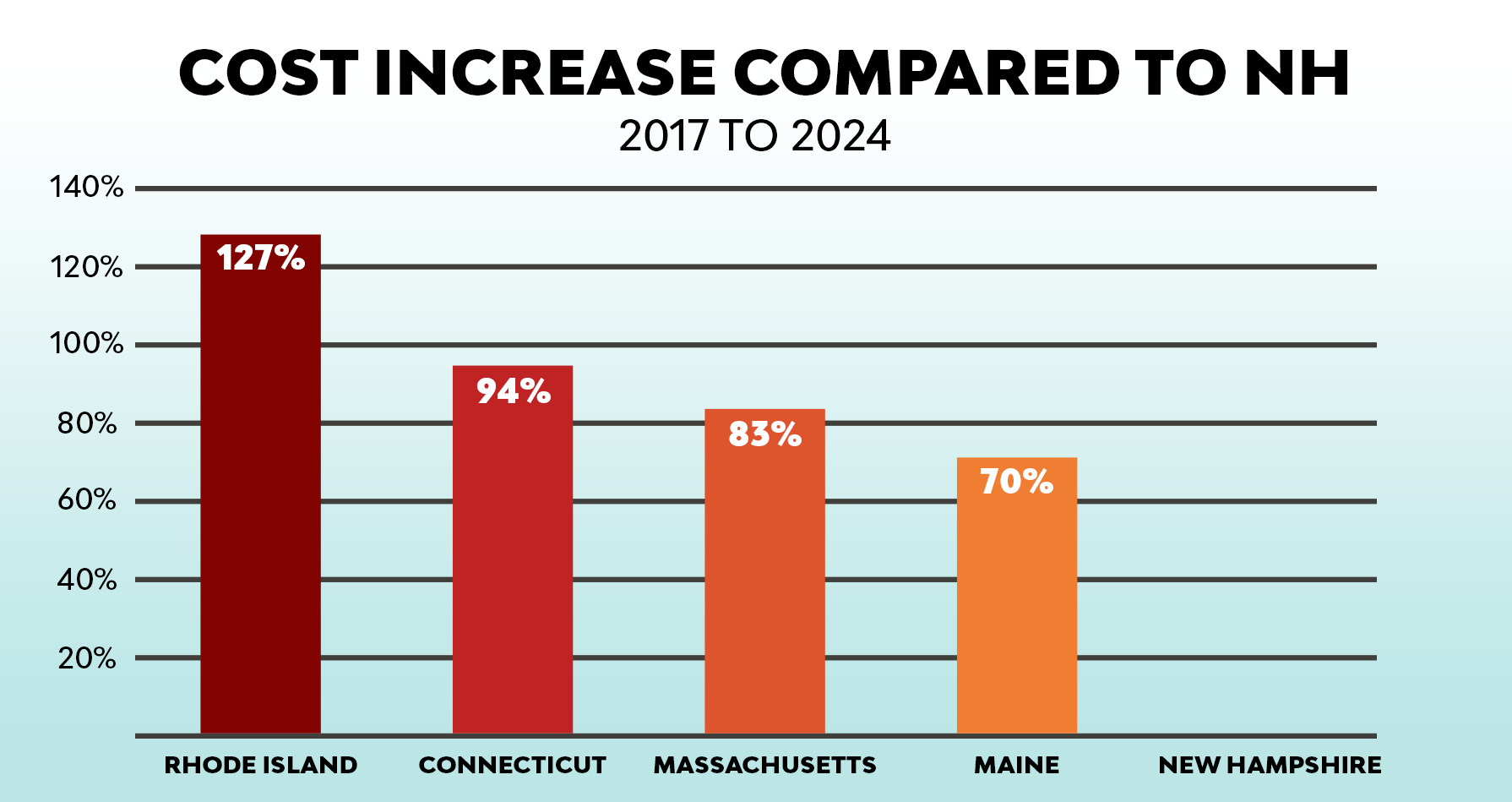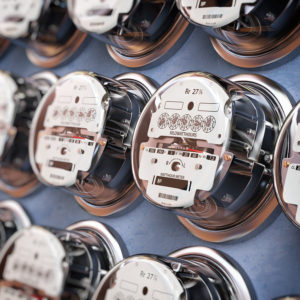As the two Democrats campaigning to replace him complain about Gov. Chris Sununu’s energy policy, the incumbent Republican is reminding ratepayers how much money they’re saving compared to their New England neighbors.
“Data from the Energy Information Administration’s (EIA) ‘Electric Power Monthly’ reports finds that residential electric rates in Connecticut, Maine, Massachusetts, and Rhode Island have all increased at a substantially greater rate than New Hampshire from 2017 to 2024,” Sununu’s office announced Wednesday.
The differences aren’t small, either. Next door in Massachusetts, which has pursued an aggressive green-energy policy relying on wind and solar, ratepayers’ bills have risen 83 percent higher than New Hampshire. “That means for an average household using 625 kilowatt hours a month, Massachusetts families are currently paying almost $90 more a month,” according to the statement from the Governor’s Office.
In Rhode Island, costs have soared 127 percent more than in the Granite State.

“While other states have let politics drive policy, New Hampshire has always put the ratepayers’ bottom line first,” Sununu said. “We’ve let markets, not government, drive innovation. We’ve taken a technology neutral approach that doesn’t pick winners and losers, and because of it, residential customers across New Hampshire have benefitted.”
New Hampshire Democrats, including gubernatorial candidates Joyce Craig and Executive Councilor Cinde Warmington, oppose Sununu’s energy policy and support the approach of their fellow Democrats across New England. Rather than lower rates, Democrats in the state House and Senate have pushed bills to take rebate revenue away from ratepayers and to impose green energy mandates that would drive up costs.
Craig called out Sununu for ending the $200 million in ratepayer subsidies for the Burgess Biopower plant, saying she was “disappointed” in his decision. She was also a self-declared “Climate Mayor” of Manchester, signing a pledge to uphold the Paris Climate Agreement (with a $27 trillion annual cost to the global economy) which would put upward pressure on energy costs.
But it is Warmington who has pledged to make the most drastic shift away from the current Sununu policy.
Warmington’s CLEAN energy economic plan includes mandates that would “lead New Hampshire to net zero emissions by 2040.”
That would mean phasing out home heating oil, natural gas, and gas-powered cars within the next 15 years. Warmington’s plan is far more aggressive than the plan adopted by deep-blue Massachusetts, which has pledged a goal of net zero “greenhouse gas emissions” by 2050.
Ending all energy-related carbon emissions in New Hampshire is an ambitious — some would say impossible — goal, given that more than 40 percent of the households still rely on oil for their primary source of heat — the second-highest state percentage in the nation.
As for ending the sale of new gas-powered cars by 2040, the most recently available data (July 2022) from the U.S. Department of Energy shows there are only around 7,000 electric vehicles registered in the Granite State.
Warmington’s progressive energy policy may play well among Democratic primary voters, but polls show most Granite Staters hate it. A NHJournal poll released Wednesday found more than 80 percent of respondents oppose requiring all new car sales in New Hampshire to be electric vehicles.
Neither Warmington nor Craig responded to a question from NHJournal asking whether the study’s findings would affect their platforms on energy policies.
Senate President Jeb Bradley (R-Wolfeboro) called New Hampshire’s approach to energy policy-making “wise” and said the Granite State’s policies “have protected our customers, unlike the policies of our neighboring states in the region.”
House Speaker Sherman Packard (R-Londonderry) said the study’s positive findings were “because of sound energy policy implementation under Republican leadership,”
“By preventing and removing unnecessary regulations and minimizing the costs that can be passed on to ratepayers, this analysis validates that Republican energy policy has worked,” he added.
Department of Energy Commissioner Jared Chicoine said, “New England as a whole would benefit from adopting our approach.”




